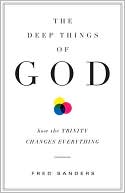1 Then what advantage has the Jew? Or what is the value of circumcision? 2 Much in every way. To begin with, the Jews were entrusted with the oracles of God. 3 What if some were unfaithful? Does their faithlessness nullify the faithfulness of God? 4 By no means! Let God be true though every one were a liar, as it is written,
“That you may be justified in your words,
and prevail when you are judged.”
5 But if our unrighteousness serves to show the righteousness of God, what shall we say? That God is unrighteous to inflict wrath on us? (I speak in a human way.) 6 By no means! For then how could God judge the world? 7 But if through my lie God's truth abounds to his glory, why am I still being condemned as a sinner? 8 And why not do evil that good may come?—as some people slanderously charge us with saying. Their condemnation is just. (Romans 3:1-8)
I think it is best if I just try to reword Paul’s line of argument. Paul writes as if he is in a debate with someone. It is helpful to note that the thought underlying all of these objections to Paul’s gospel is that God ultimate salvation plan is dependent upon Jewish faithfulness to their covenant with God.
So first the objection: “If being a part of God’s people is something that happens inwardly and not physically, if it is not circumcision of the flesh that matters but a circumcision of the heart, then what good does it do to be a Jew? And what value is their in maintaining the sign of God’s covenant with Abraham by having our male children circumcised on the eighth day? It seems God wasted his time with Jews if there is no advantage in being one.” Paul answers the objection, “There are many advantages to being a Jew. For starters, God has given us the revelation of his promises and salvation plan. Simply to say that Jews may be just as wicked and under God’s wrath as any Gentile is not to negate that.”
And then comes this between the lines objection: “God promised that he would restore Israel and that divine blessing would go through Israel. If the Jews are every bit as lost as the Gentiles, then God’s promised is nullified.” “Wrong,” says Paul. “God’s promises are not dependent upon anyone, Jews included. Everyman can be a liar (and is incidentally), but that does not nullify God’s faithfulness. It says this very thing in Psalm 51. It says not only can God be righteous in the face of human evil, but the evil itself demonstrates his righteousness.” Then again the objecting response, “If our unrighteousness makes God look good, then how can it be just for God to judge us for making him look good.” The answer: “If this objection were true, then God could not judge anyone, Jew or Gentile. It is beyond dispute that all, in some form or other, disobey God, and that such a dark backdrop only enhances God’s purity and justice. But if God cannot judge people on these grounds, then he would cease to be just, for all evil would go unpunished (e.g. God couldn’t punish a murderer because it makes him look better as a life giver).”
The objection now becomes more honed in. “But if God should please himself to enhance the display of his glory through my sin, that is if it is God’s will that I should sin in order that he would look better, then why does God condemn me for being a sinner? My sin is a part of his plan. Perhaps, at least according to this theology, God should thank me for making him look so good.” Paul simply calls this objection slander and calls for judgment for all those who make it. He, however, does answer their objection. In fact, that is what the rest of the chapter is about. But more on that later.









No comments:
Post a Comment